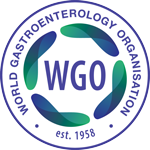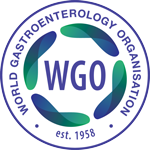Colonoscopy in the Real World
Review by Prof. Eamonn Quigley (USA)
Study Summary
In this study the authors performed a cross-sectional study of the diagnostic yield of diagnostic (excluding screening, surveillance and IBD assessment) colonoscopy in the United Kingdom between March 2019 and February 2020. 384,510 colonoscopies and sigmoidoscopies were available for analysis – a third were performed on subjects under 50 years of age. The most frequent indications were rectal bleeding (28.1%), altered bowel habit (19.9%), anemia 17.6%, abdominal pain (14.5%) and diarrhea (13.3%). For colonoscopy, the overall adjusted positive predictive value (aPPV) for cancer was 1.5% and rose to 1.9% among those over 50 and to 2.1% and 2.5% for those with anemia or rectal bleeding, respectively. Yields were much lower for other symptoms (all under 1%) even though these represented over one half of all the indications. Overall, the yield of colonoscopy in this symptomatic population as low and, indeed, lower than would be expected from colon cancer screening using the fecal immunochemical test (FIT).
Commentary
Colon cancer incidence is increasing worldwide, and early detection substantially improves survival. Colonoscopy remains the primary diagnostic tool and, given its ability to remove polyps, is likely to retain that primacy for some time. In many countries, even economically advantage ones like the UK, colonoscopy remains a somewhat scarce resource. Can we optimize its use? This large, “real world” study strongly suggests that some simple clinical algorithms could work; in their study, a combination of age (>50), sex (male) and presenting symptoms (rectal bleeding and anemia) produced a population at highest risk. Conversely, the yield was remarkably low among younger female patients with other symptoms. The authors go on to suggest that the use of biomarkers such as fecal calprotectin (to detect IBD) and the FIT test (for colon cancer screening) would increase the yield further. This data comes from the UK; the development of clinical algorithms for colonoscopy must be adjusted to cancer and polyp prevalence rates for each individual population. Nevertheless, it does encourage all of us to think again before recommending a colonoscopy.
Citation
Beaton D, Sharp L, Lu L, Trudgill N, Thoufeeq M, Nicholson B, Rogers P, Docherty J, Jenkins A, Morris AJ, Rösch T, Rutter M. Diagnostic yield from symptomatic lower gastrointestinal endoscopy in the UK: A British Society of Gastroenterology analysis using data from the National Endoscopy Database. Aliment Pharmacol Ther. 2024;59:1589-1603.
View past News You Can Use commentaries

